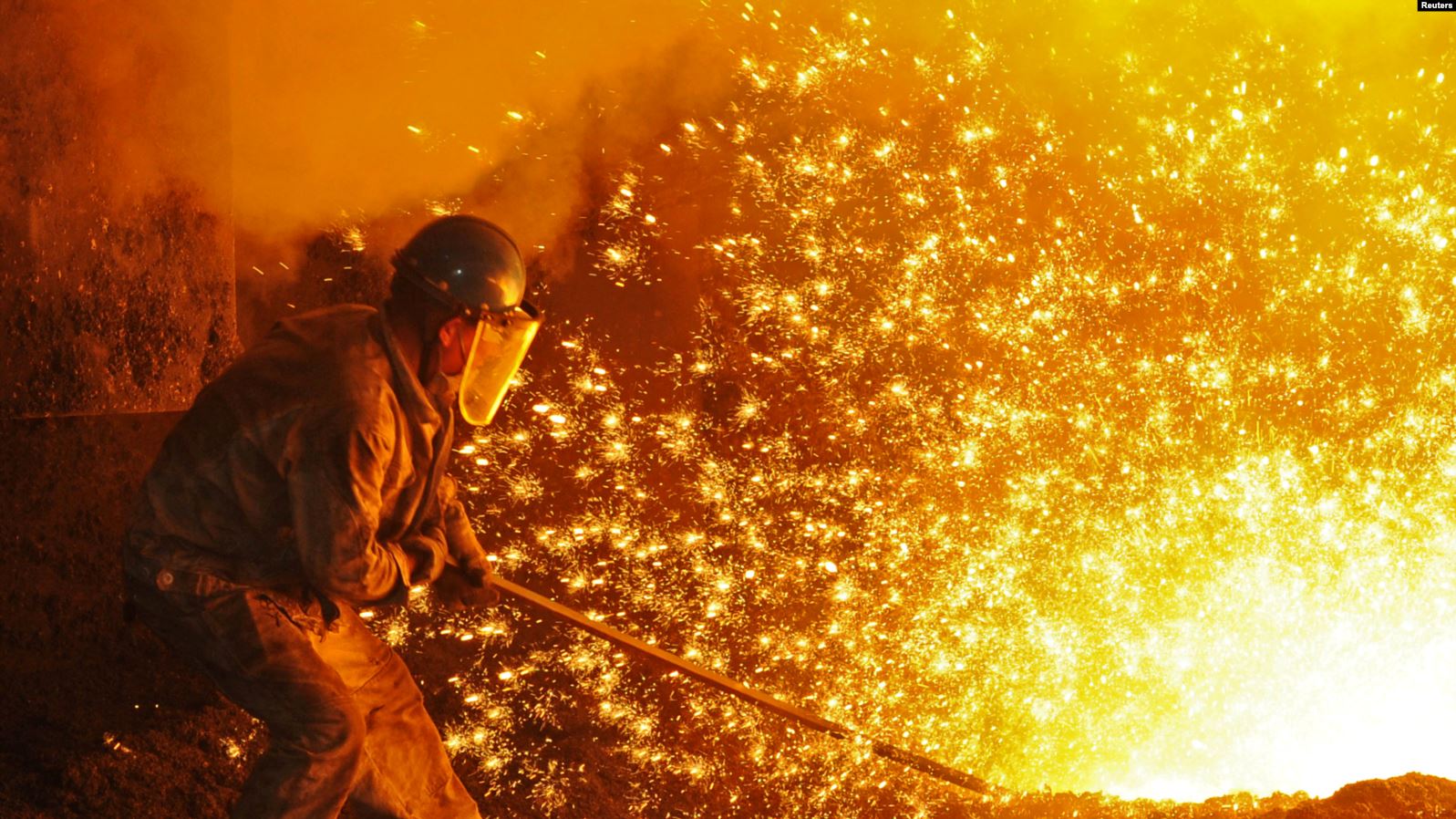پادکست VOA: اصطلاحات انگلیسی – یه آدم معمولی
سلام با هشتاد و دومین قسمت از مجموعه “Words and Their Stories” (کلمات و داستان آن ها) از سری پادکستهای VOA در خدمت شما هستیم. این مجموعه پادکست به توضیح اصطلاحات رایج زبان انگلیسی، داستان ایجاد شدنشون و نحوه استفاده از آن ها در مکالمه می پردازه. در این قسمت از پادکست VOA: اصطلاحات انگلیسی – یه آدم معمولی قراره با کاربرد، تاریخچه و معنی اصطلاح “run-of-the-mill” آشنا بشی. در کنارش چندین اصطلاح و کلمه ی جالب و کاربردی دیگه هم یاد میگیری که لیست این کلمه ها به همراه معنی اون ها در پایان مطلب قرار گرفته.
اصطلاحات “run-of-the-mill” و “cookie-cutter“ به چیزهایی گفته میشه که خیلی معمولی و عادی هستن و هیچ چیز خاص و هیجان انگیزی راجع بهشون وجود نداره.
VOA – Words and Their Stories – 82 : Be Special, Not Just ‘Run-of-the-Mill’

متن انگلیسی پادکست VOA: اصطلاحات انگلیسی – یه آدم معمولی :
Now, the VOA Learning English program Words and Their Stories.
On this program, we explore words and expressions in the English language. We also explain how they developed and how English speakers use them today.
We try really hard to make this program special! But not everything can be special all the time. In fact, many things are just average or normal. Today we talk about an expression often used to describe such things: run-of-the-mill.
So, why do we use this expression to mean not-so-special? To explain the meaning of run-of-the-mill, let’s talk about the word “mill.”
A mill is a place where machines make products. It is like a factory. For example, a paper mill makes paper and a steel mill manufactures steel. A mill can produce just about anything.
While mills make many kinds of products, language experts are not exactly sure which type of mill is being described in the expression “run-of-the-mill.”
One possible explanation begins in a clothing mill.

Many years ago, all clothes were made by hand. Handmade clothes took a lot time to make and they were generally one of a kind. None of them looked exactly the same. However, as technology improved, machines began making most clothing.
By the early 1900s, the expression “run of the mill” described machine-made clothes. Such clothing was thought to be less “special” than handmade products.
Now, another story simply suggests that when mills were producing products, quality control was a problem. A mill would simply make a lot of a product without much thought of quality. You could say it was a quantity over quality way of thinking — the more, the better.
Language experts note that by the early 1920s, people began using “run-of-the-mill” to describe anything thought to be ordinary or commonplace.
Today, that meaning is unchanged. Anything that is a typical example of something, we can call “run-of-the-mill.” And this expression is widely used today.
If you go to a show and the singer is just so-so, you could say it was a run-of-the-mill performance. Perhaps you bought a run-of-the-mill computer; you know, a model that you can find anywhere. Maybe you have a friend who moves to a run-of-the-mill town, lives in a run-of-the-mill apartment and works a run-of-the-mill job. Nothing about his new life seems very special. Hopefully, he will make some new friends or start a new activity to make his day-to-day life more interesting!
We have a few other expressions that have a similar meaning to run-of-the-mill. One comes from the world of food.
If something is cookie-cutter, it is just like everything else. This comes from actual cookie cutters, the tools for cutting cookie dough into shapes. All the cookies come out looking the same.

The word cookie-cutter is used to describe a group of things that look alike. For example, if a land developer develops a neighborhood using the same design for all of the houses, they may look very cookie-cutter, or all the same.
Another expression comes from a favorite activity of many people — gardening.
If something is described as a garden-variety, it is average, common or mediocre. This comes from the fact that some things grow very easily. And some fruits, vegetables, flowers or plants that grow easily become popular with gardeners. They are varieties that are found in many gardens. So we call them garden-varieties.
Now, let’s hear how we can use some o f these words and expressions.
A: Hey, I need a haircut, but the woman who cuts my hair just moved. Can you suggest someone?
B: Well, if you want something different and unique, I would go to Renaldo at Creative Cuts. But I have to warn you, it’s going to cost you.
A: Maybe later I can try a really different hair style. But for right now, I just want a simple, garden-variety cut.
B: In that case, go to Beatrice at Simple Cuts. The haircut won’t stand out, but it also won’t cost a lot.
A: Sounds great. Thanks!
A: You must try a piece of this bread.
B: Wow. This is really good! Where did you get it?
A: It’s a new place down on Waterfront Street. From the outside, it looks like your average, run-of-the-mill bakery. But as soon as you enter the store, you know it’s not. They handcraft all of their breads and pastries. Nothing cookie-cutter about this place.
B: Ha, ha, ha! Cookie-cutter. Get it?
A: Yeah. That’s funny.
B: So, what’s the name of this unique bakery? I have to go!
A: It’s — Not Your Run-of-the-Mill Bakery.
B: Yeah, I understand. But what’s the name?
A: It’s — Not Your Run-of-the-Mill Bakery.
B: I GET IT!
A: No, you don’t! That IS the name of the bakery.
B: Oh. Sorry.
One last note, you can use all of these expressions — cookie-cutter, garden variety and run-of-mill — in any situation, with people you know well or not at all.
And that’s Words and Their Stories for this week. I’m Anna Matteo.
How do you talk about ordinary things in your language? Do you have similar expressions like run-of-the-mill or cookie-cutter? Let us know in the Comments Section!
Just an ordinary song
To a special girl like you
From a simple guy
Who’s so in love with you …
Anna Matteo wrote this for VOA Learning English. George Grow was the editor. The song at the end is Marc Velasco singing just an “Ordinary Song.”
لیست واژگان این پادکست
ordinary (معمولی)– adj. normal or usual : not unusual, different, or special
type (نوع)– n. a particular kind or group of things or people
typical (معمولی)– adj. normal for a person, thing, or group : average or usual
so-so (نه خیلی خوب نه خیلی بد)– adj. neither very good nor very bad
cookie-cutter (عادی و معمولی) – adj. very similar to other things of the same kind : not original or different
gardening (باغبانی) – v. to work in a garden : to take care of the plants in a garden
variety (تنوع)– n. the quality or state of having or including many different things
mediocre (متوسط)– adj. not very good
unique (منحصر به فرد)– adj. being the only one
handcrafted (دست ساز)– v. to make something by using your hands
امیدوارم از پادکست VOA: اصطلاحات انگلیسی – یه آدم معمولی لذت برده باشید. برای دسترسی به قسمت های دیگر این پادکست می توانید از صفحه ی پادکست VOA: اصطلاحات انگلیسی آکادمی مجازی آموزش زبان ۲۴talk دیدن کنید.
همچنین برای گوش دادن به پادکست های سطح بندی شده British Council می توانید به صفحه ی پادکست British Council آکادمی مجازی آموزش زبان ۲۴talk یا برای گوش دادن به پادکست های BBC به صفحه ی پادکست ۶ دقیقه انگلیسی (BBC) آکادمی مجازی آموزش زبان ۲۴talk مراجعه کنید.
گوش دادن به پادکست روش خوبی برای تقویت مهارت شنیداری و هم چنین یادگرفتن کلمات در بستر یک موضوع خاصه که این به تقویت مهارت مکالمه انگلیسی نیز کمک زیادی می کنه.
اگه دنبال این هستی که مهارت های مکالمه زبان انگلیسیت رو بیشتر از این تقویت کنی بهت پیشنهاد میکنم در دورهی مکالمه زبان انگلیسی آکادمی مجازی آموزش زبان انگلیسی ۲۴talk شرکت کنی که با یه برنامه منسجم و خلاقانه کمک میکنه در زمان کوتاه بتونی به راحتی و روانی انگلیسی صحبت کنی.







